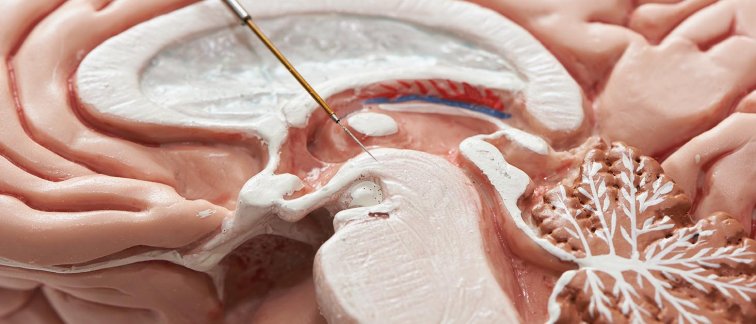Despite the collected evidence over the last two decades, the number of psychiatric patients treated with deep brain stimulation (DBS) is lagging behind, in comparison with neurology patients. However, this treatment can certainly be a solution for patients for whom the usual treatments do not work. Researchers from Amsterdam UMC, Roel Mocking, Damiaan Denys, and Ilse Graat published this in the journal Frontiers.
In DBS treatment, electrodes are inserted into the brain which emits electrical signals that stimulate certain areas of the brain. There is now sufficient evidence for the effectiveness of DBS, particularly in obsessive-compulsive disorder (OCD). And there is also an increasing understanding of the effect of DBS in psychiatric disorders, thanks to methods such as measuring brain activity.
Disease number 1
Nevertheless, DBS is chosen much less often in psychiatry than for example in neurological disorders. An estimated 300,000 neurological patients have been treated with DBS in the past 20 years, compared to 500 psychiatric patients. A big difference, while the results of DBS are comparable for both groups of patients. Psychiatrist and researcher Roel Mocking: “Better access for psychiatric patients to DBS and more awareness among psychiatrists about neurostimulation can contribute to better treatment. For example, for patients with depression for whom the usual treatments do not work. Currently, there is a study investigating the effects of DBS in this group. However, it is difficult to find patients for this study. While depression is still disease number 1 and many patients do not benefit from the usual treatment. Especially for them can DBS be a good approach.
Insufficient funding
There seem to be more fundamental problems that hinder the use of DBS in psychiatry. Mental health research is underfunded. This hinders the development and implementation of new treatments such as DBS. Mocking: “Among psychiatrists there seem to be a prejudice about DBS that hinders the use of this treatment. Acceptance of DBS is essential to be able to offer this treatment as a fully-fledged option in psychiatry.”
Read the publication in Frontiers: Why Has Deep Brain Stimulation Had So Little Impact in Psychiatry?

